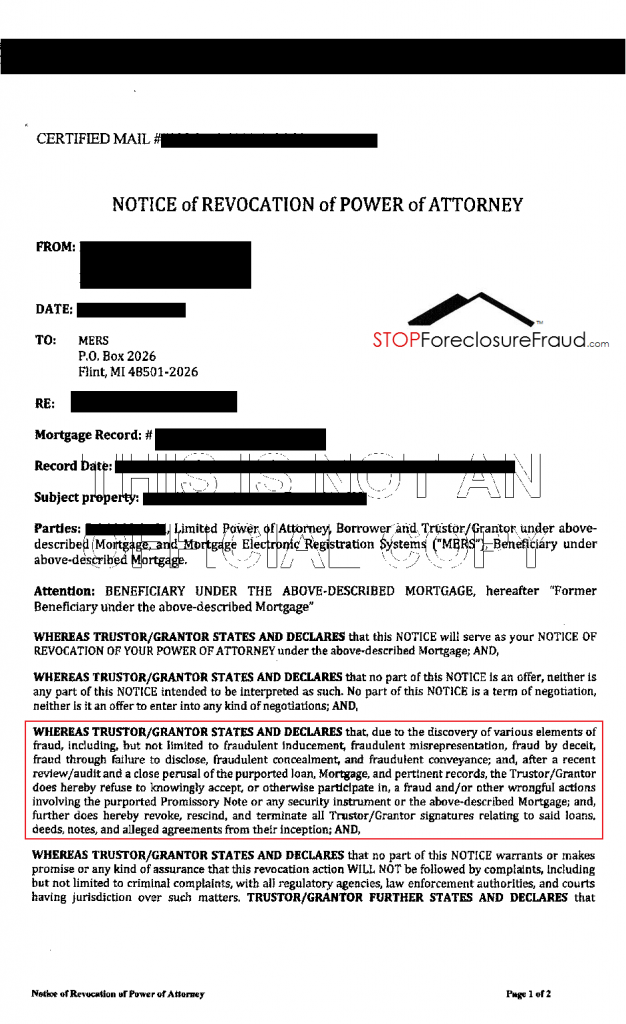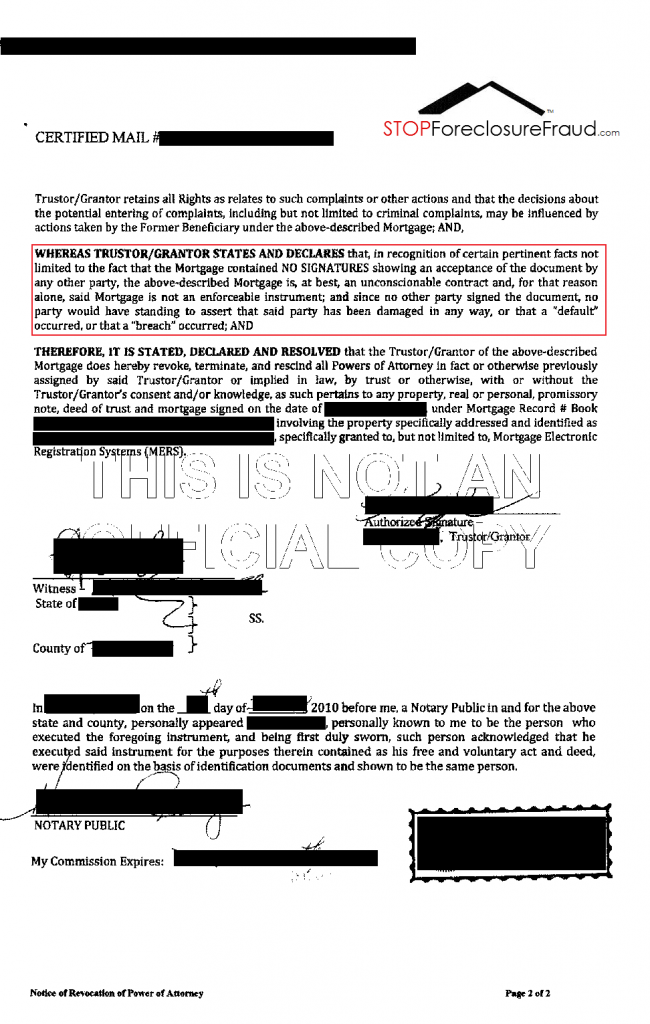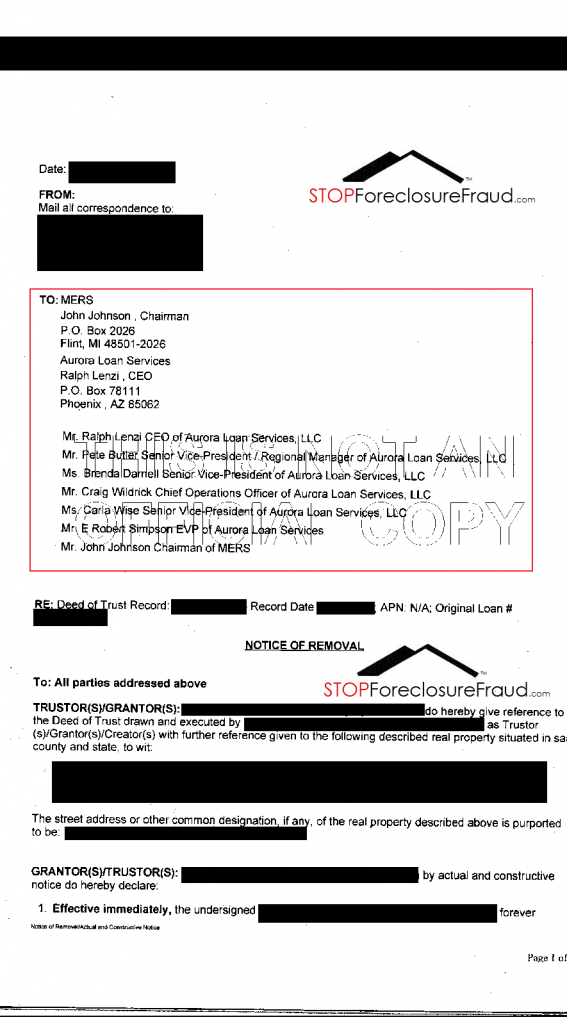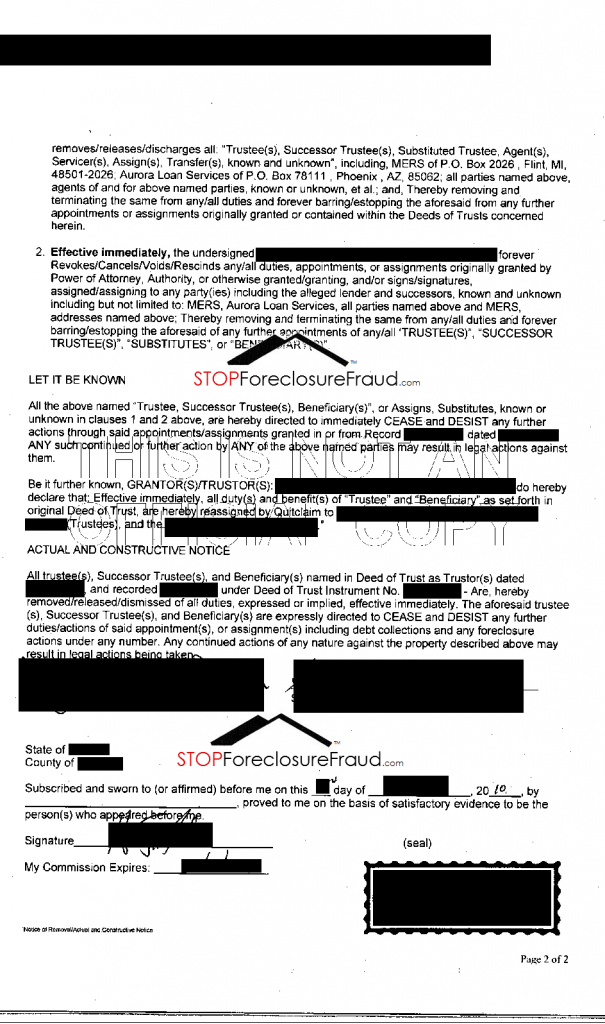DEUTSCHE BANK NATIONAL TRUST COMPANY,
v.
JP MORGAN CHASE BANK, N. A.
A10A1509.
Court of Appeals of Georgia.
Decided: November 19, 2010.
BARNES, Presiding Judge.
JP Morgan Chase Bank, N. A. commenced this action against Deutsche Bank National Trust Company f/k/a Banker’s Trust Company after the two banks conducted competing foreclosure sales of certain real property in DeKalb County. JP Morgan’s claim of title to the property was predicated on a 2004 security deed, while Deutsche Bank’s claim of title was predicated on a 2001 security deed. The case turned on the legal effect of a notarized warranty deed recorded in 2003 and on whether JP Morgan was a bona fide purchaser for value based upon the warranty deed. The trial court granted summary judgment to JP Morgan, concluding that JP Morgan’s interest in the property was superior to and not subject to any interest held by Deutsche Bank. We conclude that the uncontroverted evidence shows that the 2003 warranty deed was not a forgery, but was signed by someone fraudulently assuming authority, and that JP Morgan was a bona fide purchaser for value entitled to take the property free of any outstanding security interest held by Deutsche Bank. Thus, we affirm.
To prevail on a motion for summary judgment, the moving party must demonstrate that there is no genuine issue of material fact, and that the undisputed facts, viewed in a light most favorable to the party opposing the motion, warrant judgment as a matter of law. Our review of a grant of summary judgment is de novo, and we view the evidence and all reasonable inferences drawn from it in the light most favorable to the nonmovant.
(Citations and punctuation omitted.) Consumer Solutions Fin. Svc. v. Heritage Bank, 300 Ga. App. 272 (684 SE2d 682) (2009). See OCGA § 9-11-56 (c); Lau’s Corp. v. Haskins, 261 Ga. 491 (405 SE2d 474) (1991). Guided by these principles, we turn to the record in the present case.
This case involves a dispute over the tract of real property located at 275 Haas Avenue, Atlanta, Georgia 30316 in DeKalb County (the “Property”). The Property was conveyed to Rebecca Diaz by warranty deed recorded in September 2001. On the same date, Diaz executed and recorded a security deed encumbering the Property in favor of People’s Choice Home Loan, Inc. (the “2001 Security Deed”). IndyMac Bank, F. S. B. acquired the 2001 Security Deed by assignment.
In July 2003, a notarized warranty deed from “Indy Mac Bank, F. S. B.” to Diaz was recorded which purported to reconvey the Property to Diaz in fee simple (the “Warranty Deed”). The Warranty Deed was executed by an individual named Pamela Whales, who identified herself as an Assistant Vice President of IndyMac. The Warranty Deed was attested by two witnesses, one of whom was a notary public.
The Property subsequently was deeded to various parties but ultimately to an owner who, in April 2004, executed and recorded a security deed encumbering the Property in favor of OneWorld Mortgage Corporation (the “2004 Security Deed”). Washington Mutual Bank F. A. acquired the 2004 Security Deed by assignment.
In June 2004, IndyMac assigned the 2001 Security Deed to Deutsche Bank. That same month, Deutsche Bank foreclosed upon the Property pursuant to the power of sale provision contained in the 2001 Security Deed. Deutsche Bank was the highest bidder at the foreclosure sale.
In December 2005, Washington Mutual also foreclosed upon the Property pursuant to the power of sale provision contained in the 2004 Security Deed. Washington Mutual was the highest bidder at the foreclosure sale. Thereafter, Washington Mutual was closed by the federal Office of Thrift Supervision, and JP Morgan succeeded to Washington Mutual’s interest in the Property under the terms of a purchase and assumption agreement.
Following the competing foreclosure sales, JP Morgan brought this action against Deutsche Bank for declaratory relief and attorney fees, alleging that its interest in the Property was superior to and not subject to any interest held by Deutsche Bank. Deutsche Bank answered and counterclaimed for a declaratory judgment that its interest in the Property was superior to and not subject to any interest held by JP Morgan.
The parties cross-moved for summary judgment on their declaratory judgment claims. JP Morgan argued that the 2001 Security Deed upon which Deutsche Bank predicated its interest in the Property had been canceled by the Warranty Deed as a matter of law. Alternatively, JP Morgan argued that the uncontroverted evidence showed that it qualified as a bona fide purchaser for value such that it was protected against any outstanding security interest in the Property held by Deutsche Bank. Deutsche Bank strongly disputed these arguments, contending that the Warranty Deed was facially irregular, had been forged, and failed to satisfy the statutory requirements for cancellation of a security deed. The trial court granted summary judgment to JP Morgan and denied it to Deutsche Bank. Deutsche Bank now appeals the trial court’s grant of JP Morgan’s motion for summary judgment.[1]
1. We affirm the trial court’s grant of summary judgment in favor of JP Morgan because the uncontroverted evidence shows that JP Morgan was afforded the protection of a bona fide purchaser for value, not subject to any outstanding security interest in the Property held by Deutsche Bank.
“To qualify as a bona fide purchaser for value without notice, a party must have neither actual nor constructive notice of the matter at issue.” (Citation and punctuation omitted.) Rolan v. Glass, 305 Ga. App. 217, 218 (1) (699 SE2d 428) (2010). “Notice sufficient to excite attention and put a party on inquiry shall be notice of everything to which it is afterwards found that such inquiry might have led.” (Citation and footnote omitted.) Whiten v. Murray, 267 Ga. App. 417, 421 (2) (599 SE2d 346) (2004). “A purchaser of land is charged with constructive notice of the contents of a recorded instrument within its chain of title.” (Citation and footnote omitted.) VATACS Group v. HomeSide Lending, (2005). Furthermore, the grantee of a security interest in land and subsequent purchasers are entitled to rely upon a warranty deed that is regular on its face and duly recorded in ascertaining the chain of title. See Mabra v. Deutsche Bank & Trust Co. Americas, 277 Ga. App. 764, 767 (2) (627 SE2d 849) (2006), overruled in part on other grounds by Brock v. Yale Mtg. Corp., ___ Ga. ___ (2) (Case No. S10A0950, decided Oct. 4, 2010). 276 Ga. App. 386, 391 (2) (623 SE2d 534)
On motion for summary judgment, JP Morgan argued that it was entitled to protection as a good faith purchaser because the notarized, recorded Warranty Deed purported to transfer the Property back to Diaz, thereby extinguishing the 2001 Security Deed, and there was no reason to suspect a defect in the Warranty Deed calling into question the chain of title. In contrast, Deutsche Bank argued that JP Morgan was not entitled to such protection because the Warranty Deed was facially irregular in that it misidentified the grantor and failed to comply with OCGA § 14-5-7 (b).
We agree with JP Morgan and reject the arguments raised by Deutsche Bank. The Warranty Deed was regular on its face and duly recorded. See OCGA § 44-5-30 (“A deed to lands must be in writing, signed by the maker, and attested by at least two witnesses.”). See also OCGA § 44-2-21 (a) (4), (b) (one of two required attesting witnesses may be a notary public). Also, the Warranty Deed on its face was executed in a manner that conformed with OCGA § 14-5-7 (b), which provides:
Instruments executed by a corporation releasing a security agreement, when signed by one officer of the corporation or by an individual designated by the officers of the corporation by proper resolution, without the necessity of the corporation’s seal being attached, shall be conclusive evidence that said officer signing is duly authorized to execute and deliver the same.
The Warranty Deed appeared to be executed by an assistant vice president of IndyMac, and thus by an “officer of the corporation.” Moreover, the only interest that IndyMac held in the Property prior to execution of the Warranty Deed was its security interest arising from the 2001 Security Deed, and reconveyance of the Property by way of a warranty deed was a proper way to release that security interest. See Clements v. Weaver, 301 Ga. App. 430, 434 (2) (687 SE2d 602) (2009) (grantor of quitclaim deed estopped from asserting any interest in property conveyed); Southeast Timberlands v. Haiseal Timber, 224 Ga. App. 98, 102 (479 SE2d 443) (1996) (physical precedently only). The Warranty Deed, therefore, facially complied with OCGA § 14-5-7 (b) and would appear to anyone searching the county records to serve as “conclusive evidence” that execution of the deed had been authorized by IndyMac.
(a) In opposing summary judgment, Deutsche Bank argued that the Warranty Deed was facially irregular because it improperly identified the grantor as “Indy Mac Bank, F. S. B.” rather than “IndyMac Bank, F. S. B.” But “a mere misnomer of a corporation in a written instrument . . . is not material or vital in its consequences, if the identity of the corporation intended is clear or can be ascertained by proof.” (Citation, punctuation, and emphasis omitted.) Hawkins v. Turner, 166 Ga. App. 50, 51-52 (1) (303 SE2d 164) (1983). It cannot be said that the mere placement of an additional space in the corporate name (i.e., “Indy Mac” versus “IndyMac”) made the identity of the corporation unclear. As such, the misnomer did not render the Warranty Deed irregular on its face.
(b) Deutsche Bank also argued that the Warranty Deed failed to comply with OCGA § 14-5-7 (b) because the phrase “when signed by one officer of the corporation” should be construed as requiring the signature of the corporate president or vice president. “The cardinal rule of statutory construction requires that we look to the intention of the legislature. And in so doing, the literal meaning of the statute prevails unless such a construction would produce unreasonable or absurd consequences not contemplated by the legislature.” Johnson v. State, 267 Ga. 77, 78 (475 SE2d 595) (1996). The words of OCGA § 14-5-7 (b) are unambiguous and do not lead to an unreasonable or absurd result if taken literally: any officer of the corporation has authority to sign the instrument releasing the security interest. There is no basis from the language of the statute to limit that authority to a subset of corporate officers such as a president or vice president.
It is clear that the legislature knew how to specify such a limitation when it chose to do so. In OCGA § 14-5-7 (a),[2] the legislature imposed a limitation on the specific types of corporate officers who could execute instruments for real estate conveyances other than those releasing security agreements. Consequently, we must presume that the legislature’s failure to include similar limiting language in OCGA § 14-5-7 (b) “was a matter of considered choice.” Transp. Ins. Co. v. El Chico Restaurants, 271 Ga. 774, 776 (524 SE2d 486) (1999).
Deutsche Bank further argued that the Warranty Deed failed to comply with OCGA § 14-5-7 (b) because the statute should be construed as requiring the instrument to expressly state that it was “releasing a security agreement,” and the Warranty Deed did not contain such express language. But nothing in the plain language of OCGA § 14-5-7 (b) imposes an express language requirement, “and the judicial branch is not empowered to engraft such a [requirement] on to what the legislature has enacted.” (Citation omitted.) Kaminer v. Canas, 282 Ga. 830, 835 (1) (653 SE2d 691) (2007).
(c) Given the facial regularity of the recorded Warranty Deed, there was no reason to suspect that it might be defective in some manner or that there might be a problem in the chain of title resulting from the deed. Nothing in the Warranty Deed would have excited attention or put a party on inquiry that the 2001 Security Deed might remain in full force and effect. Accordingly, the original grantee of the 2004 Security Deed (OneWorld Mortgage Corporation) was entitled to rely upon the facially regular Warranty Deed and was afforded the protection of a bona fide purchaser of the Property, entitled to take the Property free of the 2001 Security Deed. See generally Farris v. Nationsbanc Mtg. Corp., 268 Ga. 769, 771 (2) (493 SE2d 143) (1997) (“A bona fide purchaser for value is protected against outstanding interests in land of which the purchaser has no notice.”). Because OneWorld Mortgage Corporation had the status of a bona fide purchaser, subsequent holders of the 2004 Security Deed were likewise afforded that status, including Washington Mutual (now JP Morgan). See OCGA § 23-1-19 (“If one without notice sells to one with notice, the latter shall be protected[.]”; Murray v. Johnson, 222 Ga. 788, 789 (3) (152 SE2d 739) (1966); Thompson v. Randall, 173 Ga. 696, 701 (161 SE 377) (1931). Consequently, summary judgment was appropriate to JP Morgan on the issue of its status as a bona fide purchaser for value.
2. In opposing summary judgment, Deutsche Bank contended that even if JP Morgan qualified as a bona fide purchaser for value, there was a genuine issue of material fact over whether the Warranty Deed constituted a forgery, and thus over whether JP Morgan acquired good title to the Property. JP Morgan responded that the uncontroverted evidence showed that the Warranty Deed did not constitute a common law forgery, which occurs when someone signs another person’s name, since the Warranty Deed was signed by a person using her own name but who fraudulently assumed authority to act on behalf of IndyMac. JP Morgan further maintained that its status as a bona fide purchaser for value protected it against any fraud (rather than forgery) that might have been involved in the execution of the Warranty Deed.
The dispute between the parties centered on the assertions contained in the affidavit of Yolanda Farrow, which was filed by Deutsche Bank in opposition to summary judgment (the “Farrow Affidavit”). Farrow averred that she was a records keeper formerly employed by IndyMac and currently employed at IndyMac’s successor bank. Farrow further averred that her office maintained the IndyMac personnel records in an electronic database; that she had personal knowledge of the maintenance and upkeep of those records; and that she had personally researched and examined the records database for the person identified in the Warranty Deed as Pamela Whales, Assistant Vice President. Based upon her review of the records database, Farrow opined that to the best of her knowledge and belief, no one by that name was an employee or agent of IndyMac when the Warranty Deed was executed. Deutsche Bank maintained that the Farrow Affidavit served as circumstantial evidence creating a genuine issue of material fact over whether the Warranty Deed was a forgery.
[W]e have . . . long recognized that a forged deed is a nullity and vests no title in a grantee. As such, even a bona fide purchaser for value without notice of a forgery cannot acquire good title from a grantee in a forged deed, or those holding under such a grantee, because the grantee has no title to convey.
(Citations and punctuation omitted.) Brock, ___ Ga. at ___ (2). See also Second Refuge Church of Our Lord Jesus Christ v. Lollar, 282 Ga. 721, 726-727 (3) (653 SE2d 462 (2007). In contrast, a bona fide purchaser is protected against fraud in the execution or cancellation of a security deed of which he or she is without notice. See Murray, 222 Ga. at 789 (4).
We conclude that the Farrow Affidavit filed by Deutsche Bank was insufficient to raise a genuine issue of material fact as to whether the Warranty Deed was a forgery.
A recorded deed shall be admitted in evidence in any court without further proof unless the maker of the deed, one of his heirs, or the opposite party in the action files an affidavit that the deed is a forgery to the best of his knowledge and belief. Upon the filing of the affidavit, the genuineness of the alleged deed shall become an issue to be determined in the action.
OCGA § 44-2-23. While “forgery” is not defined in the statute, we have previously noted that the general principles espoused in the statute were “taken from the common law.” McArthur v. Morrison, 107 Ga. 796, 797 (34 SE 205)Intl. Indem. Co. v. Bakco Acceptance, 172 Ga. App. 28, 32 (2) (322 SE2d 78)Barron v. State, 12 Ga. App. 342, 348 (77 SE 214)Gilbert v. United States, 370 U. S. 650, 655-658 (II) (82 SC 1399, 8 LE2d 750) (1962) (discussing the common law of forgery); People v. Cunningham, 813 NE2d 891, 894-895 (N. Y. 2004) (same). On the other hand, (1899). Furthermore, we favor the construction of a statute in a manner that is in conformity with the common law, rather than in derogation of it. See (1984). Under the common law, a forgery occurs where one person signs the name of another person while holding out that signature to be the actual signature of the other person. See (1913) (“[T]o constitute forgery, the writing must purport to be the writing of another party than the person making it.“) (citation and punctuation omitted). See also
[w]here one executes an instrument purporting on its face to be executed by him as the agent of the principal, he is not guilty of forgery, although he has in fact no authority from such principal to execute the same. This is not the false making of the instrument, but merely a false and fraudulent assumption of authority.
(Citation and punctuation omitted.) Ga. Cas. & Surety Co. v. Seaboard Surety Co., 210 F. Supp. 644, 656-657 (N. D. Ga. 1962), aff’d, Seaboard Surety Co. v. Ga. Cas. & Surety Co., 327 F.2d 666 (5th Cir. 1964) (applying Georgia law). This common law distinction between forgery and a fraudulent assumption of authority has been discussed and applied in several Georgia cases. See Morgan v. State, 77 Ga. App. 164, 165 (48 SE2d 115) (1948); Samples v. Milton County Bank, 34 Ga. App. 248, 250 (1) (129 SE 170) (1925); Barron, 12 Ga. App. at 347-350.
In the present case, the Farrow Affidavit merely asserted that Whales, the individual who signed the Warranty Deed, was not an employee or agent of IndyMac. It is undisputed that the individual signing the Warranty Deed was in fact Whales. Hence, the Farrow Affidavit alleged a fraudulent assumption of authority by Whales, not a forgery, under the common law. See Georgia Cas. & Surety Co., 210 F. Supp. at 656-657; Morgan, 77 Ga. App. at 165; Samples, 34 Ga. App. at 250 (1); Barron, 12 Ga. App. at 347-350.
Arguing for a contrary conclusion, Deutsche Bank maintained that the cases applying the Georgia common law of forgery which have addressed the doctrine of a “fraudulent assumption of authority” have involved an admitted agent with some authority to act on behalf of its principle, but who exceeded that authority. Deutsche Bank asserted that the present case is thus distinguishable, since the Farrow Affidavit reflected that Whales had no authority to act as an agent of IndyMac in any capacity or under any circumstances.
We are unpersuaded. Nothing in the language or reasoning of the cases applying the doctrine of fraudulent assumption of authority suggests that the doctrine should be limited in the manner espoused by Deutsche Bank. See Georgia Cas. & Surety Co., 210 F. Supp. at 656-657;Morgan, 77 Ga. App. at 165; Samples, 34 Ga. App. at 250 (1); Barron, 12 Ga. App. at 347-350. Indeed, in Georgia Cas. & Surety Co., 210 F. Supp. at 652, 656-657, the district court did not hesitate to apply the doctrine, even though the court found that the individuals who had executed the corporate documents were “purely intruders” with “no contract of employment existing nor even in contemplation,” who lacked any authority whatsoever to act on behalf of the corporation as officers or otherwise.
For these reasons, the trial court correctly rejected Deutsche Bank’s contention that there was evidence that the Warranty Deed had been forged. Because the Farrow Affidavit at best showed a fraudulent assumption of authority by Whales as signatory to the Warranty Deed, JP Morgan, as a bona fide purchaser, was protected against the fraudulent actions alleged by Deutsche Bank. See Murray, 222 Ga. at 789 (4).
3. In opposing summary judgment, Deutsche Bank also maintained that the Warranty Deed could not cause the 2001 Security Deed to be canceled because the Warranty Deed failed to comply with the requirements of OCGA § 44-14-67 (b) (2). That statute provides in pertinent part:
(b) In the case of a deed to secure debt which applies to real property, in order to authorize the clerk of superior court to show the original instrument as canceled of record, there shall be presented for recording:
. . .
(2) A conveyance from the record holder of the security deed, which conveyance is in the form of a quitclaim deed or other form of deed suitable for recording and which refers to the original security deed[.]
According to Deutsche Bank, the Warranty Deed did not authorize the clerk of the superior court to cancel the 2001 Security Deed because the Warranty Deed made no express reference to the 2001 Security Deed, as required by this statute. As such, Deutsche Bank argued that, as a matter of law, the Warranty Deed could not effectuate the cancellation of the 2001 Security Deed and thereby extinguish Deutsche Bank’s interest in the Property.
Deutsche Bank’s argument was predicated on the false assumption that OCGA § 44-14-67 (b) provides the exclusive means for the cancellation or extinguishment of a security deed. But as previously noted, a bona fide purchaser for value is entitled to take property free of any outstanding security interest of which the purchaser had no actual or constructive notice. See Farris, 268 Ga. at 771 (2). And it would produce an anomalous result to interpret Georgia’s recording statutes, including OCGA § 44-14-67 (b), in a manner that would defeat the interests of a bona fide purchaser for value. See Lionheart Legend v. Northwest Bank Minn. Nat. Assn., 253 Ga. App. 663, 667 (560 SE2d 120) (2002) (noting that Georgia’s recording acts are intended to protect bona fide purchasers for value). It follows that because JP Morgan was a bona fide purchaser for value, it was entitled to take the Property free of the 2001 Security Deed, separate and apart from the procedures for cancellation by the clerk of the superior court set forth in OCGA § 44-14-67.
For these combined reasons, the trial court correctly concluded that the uncontroverted evidence of record showed that JP Morgan’s interest in the Property was superior to and not subject to any interest held by Deutsche Bank. The trial court, therefore, committed no error in granting summary judgment in favor of JP Morgan on its claim for a declaratory judgment.
Judgment affirmed. Blackwell, and Dillard, JJ., concur.
[1] Deutsche Bank does not appeal the trial court’s denial of its motion for summary judgment.
[2] OCGA § 14-5-7 (a) provides:
Instruments executed by a corporation conveying an interest in real property, when signed by the president or vice-president and attested or countersigned by the secretary or an assistant secretary or the cashier or assistant cashier of the corporation, shall be conclusive evidence that the president or vice-president of the corporation executing the document does in fact occupy the official position indicated; that the signature of such officer subscribed thereto is genuine; and that the execution of the document on behalf of the corporation has been duly authorized. Any corporation may by proper resolution authorize the execution of such instruments by other officers of the corporation.
© 2010-19 FORECLOSURE FRAUD | by DinSFLA. All rights reserved.
















![[MUST READ] NOTICE OF RECORDED MERS et al REMOVAL](https://stopforeclosurefraud.com/wp-content/themes/gazette/thumb.php?src=wp-content/uploads/2010/11/programremoved.jpg&w=100&h=57&zc=1&q=90)






![[VIDEO, RECORDING] GMAC MORTGAGE STEALS LA HOME](https://stopforeclosurefraud.com/wp-content/themes/gazette/thumb.php?src=wp-content/uploads/2010/11/gmac.jpg&w=100&h=57&zc=1&q=90)
![[NYSC] STEVEN J BAUM PC UNABLE TO LOCATE WELLS FARGO AUTHORITY TO EXECUTE TRANSFER OF ANY LOAN DOCUMENTS](https://stopforeclosurefraud.com/wp-content/themes/gazette/thumb.php?src=wp-content/uploads/2010/11/questionauthority.jpg&w=100&h=57&zc=1&q=90)









Recent Comments